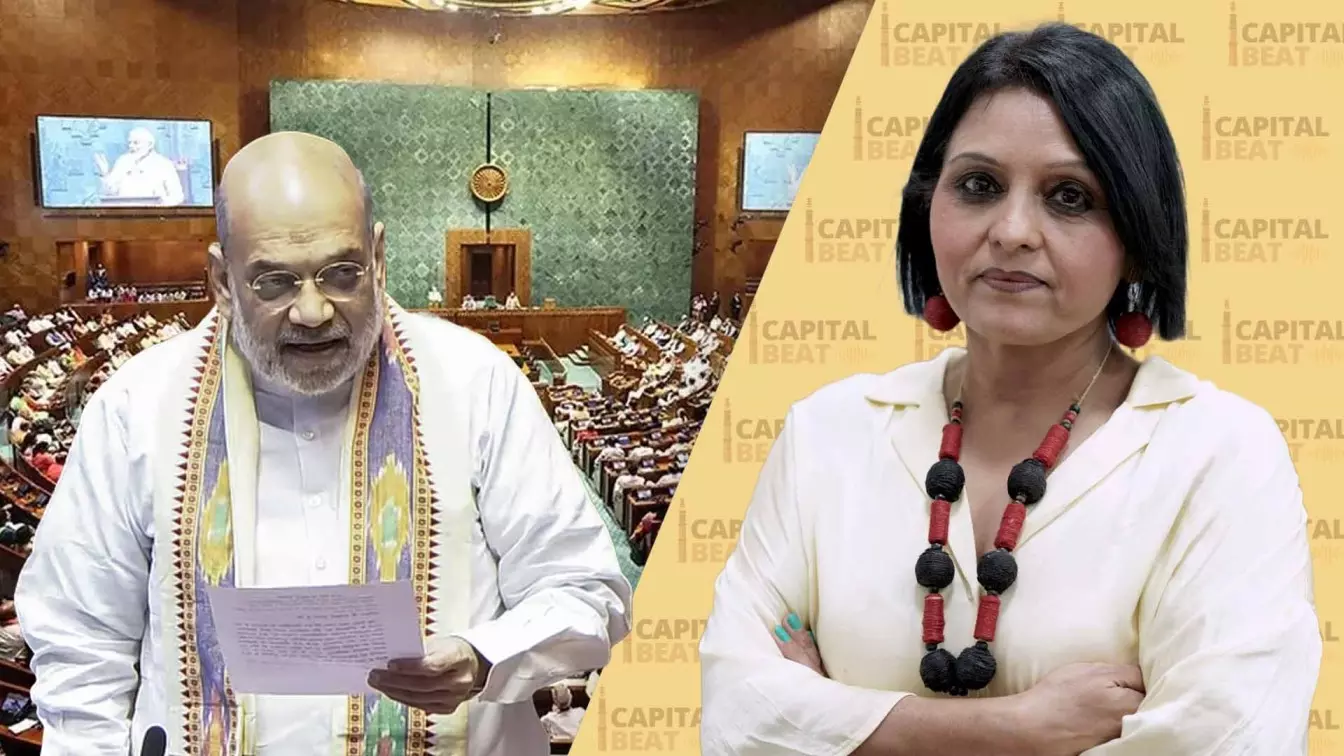
Experts say the legislation, if enacted, could destabilise state governments
130th Constitution Amendment Bill: 'Passage impossible without Opposition consensus'
Experts examine the implications of the 130th Constitutional Amendment Bill

Senior constitutional expert PDT Acharya and journalist Vivek Deshpande joined The Federal’s Capital Beat to examine the implications of the 130th Constitutional Amendment Bill introduced in Parliament. The discussion highlighted concerns that the legislation, if enacted, could destabilise state governments, undermine federalism, and be misused against opposition leaders.
Indira Jaising flags federalism concerns
Senior advocate Indira Jaising has strongly opposed the proposed amendment, warning that it would allow the removal of a Prime Minister, Chief Minister, or any minister from office if jailed for 30 days, even without conviction. She argued that this effectively weaponises the Constitution. “In a country where criminal law is used for persecution, not prosecution, and as a tool for eliminating all opposition parties, the proposed Constitutional Amendment is also weaponizing the Constitution itself,” she said.
Jaising further noted that the amendment could push the system towards one-party rule, as only ruling party ministers might remain unaffected while opposition leaders could be jailed. She stressed that corruption must be addressed through fair prosecution and disqualification after conviction, rather than through preventive detention.
Also Read: Why Modi's demographic claims are not based on hard facts
Other opposition voices, including DMK MP P Wilson, have also criticised the bill, describing it as part of a plan to centralise power and erode democratic norms.
Passage in Parliament unlikely without opposition support
Explaining the legislative hurdles, PDT Acharya underlined that any constitutional amendment requires a special majority in both Houses. In the Lok Sabha, this translates to at least 360 votes if all members are present, which is beyond the reach of the ruling alliance that currently holds 292 seats.
Acharya clarified that while the bill does not require state ratification under Article 368, its passage remains practically impossible without Opposition consensus. He described the bill as unnecessary, unexpected, and unlikely to succeed.
He cautioned, however, that if the amendment became law, it could be widely misused against state governments. “This will be misused tremendously. Any government at the Centre which doesn’t like a particular state government can use this,” he said, pointing out that Enforcement Directorate (ED) action against chief ministers could collapse elected state administrations.
Political misuse and existing safeguards
Acharya noted that India’s legislative policy has historically protected public representatives from disqualification until conviction, recognising the risk of political vendetta. He pointed to data showing that out of 193 cases filed by the ED against opposition leaders, only two have resulted in convictions, raising doubts about the credibility of such investigations.
Citing examples such as the prolonged incarceration of P. Chidambaram and Arvind Kejriwal, he argued that preventive detention could cripple governments without any judicial finding of guilt. He emphasised that ministers, like MPs and MLAs under the Representation of the People Act, should only be disqualified upon conviction.
Sudden introduction raises questions
Vivek Deshpande highlighted the surprise element of the bill’s introduction at the end of the monsoon session, calling it a departure from established parliamentary practice. Normally, constitutional amendments are circulated weeks in advance to allow MPs to study them, but in this case, the draft was tabled abruptly and immediately referred to a select committee.
Deshpande suggested that the timing indicated either a diversionary tactic or a calculated political move. The legislation coincided with the opposition’s nationwide campaign on alleged electoral malpractice in Bihar, popularly referred to as the “vote theft” issue.
He observed that the suddenness of the government’s move has baffled political observers and reinforced perceptions of a strategy designed to deflect public attention from ongoing controversies.
Impact on NDA allies and state leaders
The debate also examined how the bill could affect the ruling alliance’s own chief ministers and partners. While the law could, in theory, apply to any leader, Deshpande argued that the government was unlikely to target its own party heads. He suggested that the real concern lay with influential allies like Chandrababu Naidu and Nitish Kumar, who could make or break the coalition.
The possibility of the legislation being used against opposition chief ministers was raised, but panellists noted that such an outcome depends on the bill overcoming steep parliamentary hurdles. Both Acharya and Deshpande agreed that while the stated aim may be accountability, the underlying risk is political destabilisation.
Opposition’s campaign gains fresh momentum
The controversy surrounding the amendment has provided fresh ammunition to opposition parties, who have linked it to their broader campaign against alleged manipulation of the electoral process. Leaders such as Rahul Gandhi have mobilised large rallies in Bihar, intensifying pressure on the government.
As debate over the 130th Constitutional Amendment Bill continues, questions remain over its intent, feasibility, and long-term implications for India’s democratic framework.
The content above has been transcribed from video using a fine-tuned AI model. To ensure accuracy, quality, and editorial integrity, we employ a Human-In-The-Loop (HITL) process. While AI assists in creating the initial draft, our experienced editorial team carefully reviews, edits, and refines the content before publication. At The Federal, we combine the efficiency of AI with the expertise of human editors to deliver reliable and insightful journalism.

